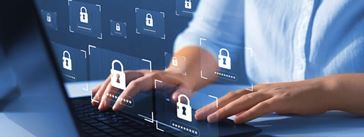- Share
Fraud Awareness
Resources & Information
- Ohio Attorney General urges awareness around possible COVID-19 stimulus payment fraud
- Federal Reserve’s Consumer Help Center
- Federal Deposit Insurance Corporation – Coronavirus
- Selected Scams Involving the Federal Reserve Name
- Federal Trade Commission Consumer Advice
Unfortunately, fraudulent activity and scams claiming to be involved with Federal Reserve Banks are a common occurrence. That’s why we want to be clear about the role of the Fed and the dangers presented by these schemes and make you aware of some typical forms they take.
The Federal Reserve provides banking services only for financial institutions. Individuals do not have accounts at the Fed. You should be wary of unsolicited e-mails, text messages, telephone calls, or other communications alleging to be from or affiliated with the Federal Reserve. The Federal Reserve does not request personal financial information such as bank account numbers. Recipients should not click on any links or attachments contained in these types of e-mails and text messages.
Scams have included false claims that Federal Reserve routing numbers can be used to pay bills or that fictitious consumer accounts are held at Federal Reserve Banks. These fictitious accounts have been most commonly styled as secret accounts and/or Social Security trust accounts. These claims are false and can be damaging for consumers. Federal Reserve routing numbers are used for sorting and processing payments between banks. Unauthorized transactions in which consumers try to use the Fed’s routing numbers and their Social Security numbers to pay bills could result in late fees or other penalty charges when the payments fail.
In general, consumers should verify the legitimacy of potential service providers before providing personal financial information or entering into a business transaction. Consumers who suspect that their personal financial information has been compromised should contact their state attorney general, local law enforcement, or the Federal Bureau of Investigation’s Internet Crime Complaint Center at www.ic3.gov.

